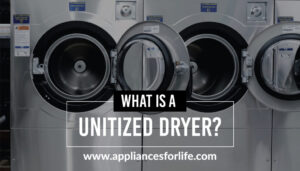- Without doubts, power consumption is a big deal for appliances in every household across the United States. Unfortunately, that’s also something people hardly pay attention to. Every household in the country perfectly understands the concept of power consumption, and while some households find it convenient, others find it very hard to keep up with. Wattage use of household appliances varies, depending on the type of appliance in question. For those with many appliances in the house, it is only normal that they’ll pay more electricity bills than those who don’t have as many appliances as they do. The fact that electricity is something we use all the time doesn’t necessarily guarantee that we know enough about it or how it affects us. As an individual or household, a power rating lists the required to operate an appliance, and it’s safe to say we all need to get our hands on the list to help save a lot of money at the end of the day. Knowing the average consumption of household appliances will give you total control over your electricity bill and allows you to make some little changes to help control how much money you spend on each appliance at the end of the day. To help you find an answer to the question “how many watts do appliances use,” we’ll be looking at the common appliances wattage used by appliances in your household.
- Modern appliances hold a huge benefit over traditional appliances, and part of that huge benefit is that they are more energy-efficient than the latter. It is no news anymore that the appliances in production today tend to consume less energy than the ones that were produced about a decade ago, but that’s not the only advantage modern appliances have over traditional appliances. These appliances have grown in popularity and that only shows that they are doing something right because people will not even try to purchase them if they’re not going to get the best value for whatever money they spend on them. The popularity modern appliances are enjoying shows just how efficient they are, and that’s not only in the energy consumption aspect, but other aspects like functionality, design, durability, and many more. If you already have your space packed with modern appliances but you seem not to be fully aware of their benefits, we’ll be exploring some of the benefits of modern appliances in this article.
Electricity is one thing we use all the time, yet we seem not to be aware of how it can be managed or how much of it our household appliances consume. Prime Reviews thinks this may be due to it being an invisible force that cannot be touched or seen but is always there whenever we need it. While it may not be entirely necessary to say that we usually take electricity for granted, some of us don’t understand the importance of electricity and how it can be managed.
Table of Contents
ToggleWe can never rule out the importance of appliances in our lives as they have always played a huge role in our lives even way before technology became this advanced. Every area of our household experiences ease with the presence of these appliances, and that’s something we can boldly say because we know just how important these appliances are to our lives. From portable air conditioners to smart refrigerators to washers and dryers; having these appliances in our lives has greatly improved the way we live and, perhaps, has also changed our approach to life.
Electricity usage of household appliances is not something many people pay attention to, but as simple as it sounds, it is a very important thing to know. People who live in certain areas where high demand, weather, or natural disasters can usually cause a blackout, know what it feels like to have a house packed with appliances but not being able to use them. They’ve been forced to improvise in situations like this, and that includes generators to try and make up for the lack of electricity in the area.
If you happen to be in that kind of situation, you’ll most likely need a generator to help you put some of your appliances to good use, but even then, it can be very financially inconvenient to connect all those appliances to a single source of power, especially the one provided by a generator. If you’re going to opt for a generator, then you’ll need to get used to the typical watts for appliances which are sometimes displayed on an appliances wattage list which we’ll be looking at later in this article. This knowledge will help you calculate the general power consumption, and to keep your bills under control, helps you decide which appliance you need to run every time and which one you’ll have to run occasionally.
Apart from helping you save a lot of money at the end of the day, the consciousness of the voltages of household appliances will help you protect your appliances so they last longer as you’ll always remember to turn them off in a bid to avoid paying more, but you’re also helping to preserve them by doing that. Before we get into the wattage chart for appliances, let’s quickly look at some of the benefits of modern appliances and the role they play in our households today.
Important Benefits of Modern Appliances
Since technology came into play, we’ve greatly enjoyed the evolution of traditional appliances into the modern ones we now have today. The invention of smart appliances has also improved our interaction with our homes as well as the other appliances around the house. The latest user-friendly innovation has not only improved our interaction with our homes but has also improved efficiency in our everyday lives, lifting a huge pressure off our shoulders as far as our domestic obligations are concerned.
According to Southwest Appliance, these improvements have been lauded by many as a new way of promoting comfort and convenience. If you’re looking to have your house packed with modern appliances, you might as well get familiar with some of the benefits you stand to enjoy from owning them at all. Below are some of the benefits of modern appliances;
You Can Access Them From Afar
Technology works in a very great way, and one of the best ways to enjoy it is through some of the appliances we have on the market today. Smart appliances work differently from anything we’ve ever been used to, and one of the benefits you’ll get to enjoy when you invest in them is that you can access them even when you’re not close to them. You can control smart appliances from wherever you are through your smartphone.
The good thing about these appliances is that they come with special software that allows you to easily connect them to your smartphone, giving you total control to securely control and monitor them even when you’re not close to them. You can also receive notifications on whatever task you’ve assigned to each appliance to do even when you’re not close by to monitor them. Also, if a problem is detected while the appliance is in operation, it’ll automatically shut off to avoid bigger damage to the machine or whatever it is you’re trying to do with it.
They Are Durable
The appliances that are in production today can last for many years without the fear of getting damaged as long as you properly maintain them. Generally, when you purchase an appliance, you expect it to last a few years without even worrying about getting a replacement. That’s because you’ve invested so much money in it but you’ll end up replacing it sooner rather than later if you don’t research the product well before purchasing it.
Thankfully, modern appliances in production today are built with quality materials and they’re built to last longer. Whatever money spent on them will always be worth it because, at the end of the day, you’ll get the best value for your money. It’s safe to say that if you invest in modern appliances, as expensive as they might be initially, you won’t have to worry about replacing them for the next few years because they’re built to be strong and durable.
They Are Energy Efficient
Modern appliances may come with lots of features that make them consume more energy than the ones that don’t have as many features, but when you compare their energy efficiency to their traditional counterparts, you’ll see a big difference. Perhaps the biggest advantage modern appliances have over conventional appliances is that they don’t consume as much energy, and that’s what you’ll enjoy if you decide to invest in them. Price-wise, traditional appliances may seem like the best choice because they are a whole lot cheaper than the newer models of appliances, but you’ll end up spending a lot of money on electricity bills.
You’ll always save a lot of money on electricity when you invest in modern appliances because that’s just how they’re built. They are built to be energy-efficient, so you don’t have to worry about them consuming more power than they should unless something extraordinary happens such as a bad connection or lack of proper maintenance which can lead to major damage at the end of the day.
Other Benefits of Modern Appliances
Other benefits of modern appliances include;
- Modern design
- They add more value to your space
- They connect well with each other (smart appliances)
- You’ll receive alerts whenever something is wrong with them
- They improve the way you live
How Many Watts Do Appliances Use?
Knowing how much power each appliance in your space consumes is a great way to control how much money you spend on electricity bills at the end of the day. It also helps you calculate your power needs closely and almost accurately. If you’re looking at getting a large generator in order to take on loads of most of your appliances as if they were running on the natural power source, you should take into consideration the fact that a large generator will consume a lot of fuel, which means a lot of money too.
According to Prime Reviews, calculating your energy consumption is something that has to be done carefully regardless of what you intend to do with your backup generator. The best thing to do is to make a list of the appliances you would like to use with the backup power source and try to settle for those that are necessary. To help you understand energy consumption better, we’ll be discussing how much power each common appliance in the house consumes.
How many watts does a refrigerator use?
The refrigerator is one of the most common appliances in the house, and its popularity has greatly increased over the years as a result of its extreme importance. This is that one appliance in the house that needs to run every minute of the day to keep whatever you’re trying to preserve in it fresh. If you’re trying to compromise on energy consumption by prioritizing only important appliances, this is one of those appliances that will be left to run all day because it’s important.
Every appliance has starting and running watts which indicate how much energy the appliance will consume at the beginning of its operation and also in the long run. The refrigerator consumes between 1200 watts (running watts) and 3000 watts (starting watts).
How many watts do washers and dryers use?
Washers and dryers are also important appliances in the house, only that they don’t have to work every minute of the day. On average, each of these machines consumes about 3000 – 3800 watts.
Wattage Chart For Household Appliances (Generatorist)
Household Appliances | Estimated Running Watts | Additional Surge Watts |
|---|---|---|
Central Air Conditioner (10,000 BTU) | 1,500 Watts | 4,500 Watts |
Central Air Conditioner (24,000 BTU) | 3,800 Watts | 11,400 Watts |
Central Air Conditioner (40,000 BTU) | 6,000 Watts | 6,700 Watts |
Ceiling Fan | 60 Watts | 70 Watts |
Electric Heater | 2,000 Watts | 1,000 Watts |
Electric Water Heater | 4,000 Watts | 0 Watts |
Coffee Maker | 1,000 Watts | 0 Watts |
Deep Freezer | 500 Watts | 1,500 Watts |
Dishwasher | 1,500 Watts | 1,500 Watts |
Cooker Hood | 20 Watts | 10 Watts |
Electric Kettle | 170 Watts | 3,000 Watts |
Food Processor/Blender | 400 Watts | 0 Watts |
Microwave Oven | 1,000 Watts | 0 Watts |
Modern Refrigerator | 400 Watts | 600 Watts |
Frequently Asked Questions
1. How many watts does a blender use?
The blender, alongside a food processor, consumes about 400 watts, although that depends on the kind of motor that runs in the machine. The more powerful the motor, the more power the machine will consume.
2. What appliances use the most power?
The HVAC system, from the chart we highlighted in this article, consumes the most power. Appliances such as the air conditioner and heaters consume more energy than every other household appliance.
3. Does a turned off TV still use electricity?
Yes. This is what is referred to as phantom energy. Turning off a TV but leaving it plugged in means the electronic appliance will still consume electricity. This is why it is always advised to totally unplug your electrical appliance whenever they’re not in use.
4. Will unplugging everything save electricity?
Although it’s not likely to cost you a whole lot of money, unplugging your appliances when they’re not in use can save you up to 10 percent on your electricity bill according to How Stuff Works.
Conclusion
We all need appliances in our homes to help us get through each day, and the fact that they promote comfort and convenience makes them even more important. As important as they are, things can get out of control with crazy electricity bills which can be hard to keep up with sometimes. Knowing just how much electricity each appliance in your house consumes will help you manage power consumption in your house, and help you save a lot of money at the end of the day. In this article, we’ve highlighted different appliances and their power consumption in wattage.
50 MINUTES
ESTIMATED TIME DESIGNING AND UPLOADING THIS ARTICLE
10 HOURS 50 MINUTES
ESTIMATED TIME RESEARCHING AND WRITING THIS ARTICLE
You Might Also Like

40 Inch Gas Range Perfect For Your Home
Help me find a new range! Are you considering purchasing a new 40-inch gas range for your home? Finding a great gas range doesn’t have to be a difficult process as long as you’re willing to do some work beforehand! Big appliance brand companies are

61 Effective Kitchen Organization Ideas
Our kitchen organization ideas will help you know where to put things in the kitchen, and how to organize kitchen appliances. The kitchen is one of the busiest places in the house, and a lot of people spend so much time in there that they

What is a unitized dryer? This is where the washer and dryer are combined. It is a single machine that washes and dries your clothes. Clothes are usually put in a dryer after running their cycle in a washing machine. There are several types of

Top 5 Best 27-inch Electric and Gas Wall Ovens
Cooking is not more than a hobby for most folks – it’s a way of life, after all, it can directly impact our general health at the end of the day. To make you have numerous options when choosing efficient ovens, we’ll be looking at

40 Inch Electric Range To Fit Your Cooking Needs
Getting Warmed Up A 40-inch electric range is a great thing to have when you need to cook dinners for your family or special events. For those who love to cook and love something that helps with the efficiency and quality of your food, these

Can a Blender Be Used as a Food Processor?
For every homeowner or anyone who’s in charge of a family, food processing is always seen as a big deal, and rightly so. Food is one of the most essential things we need to survive as humans. Moreso, food is needed to keep both our

Food Processor vs Blender: Battle of the Kitchen Titans
Food processor vs blender As highlighted above, Blenders and food processors are essential kitchen appliances that serve different purposes. They also have distinct features that make them suitable for various culinary tasks. Hence, if you must use both interchangeably, you better be careful not to

Top 5 Best Food Processor Brands
Going on the market to purchase a good food processor can be a long process if you don’t already have a brand you can trust. In this article, we’ll be exploring the top 5 best food processor brands in the business today. Experts have said

How Often Should You Clean Your Dishwasher Filter?
One of the best ways to ensure your dishwasher continues working efficiently is to clean its parts regularly, including the dishwasher filter. The big question, however, is – how often should you clean your dishwasher filter. We’ll explore the answers in this article. Dishwashers are

The Best Cold Press Juicer For Nut Milk
The importance of juicers in this modern world has never been in doubt. They play a huge role in our lives, especially those of us who have prioritized leading healthy lifestyles. The cold press juicer is one of the best types, and in this article,

